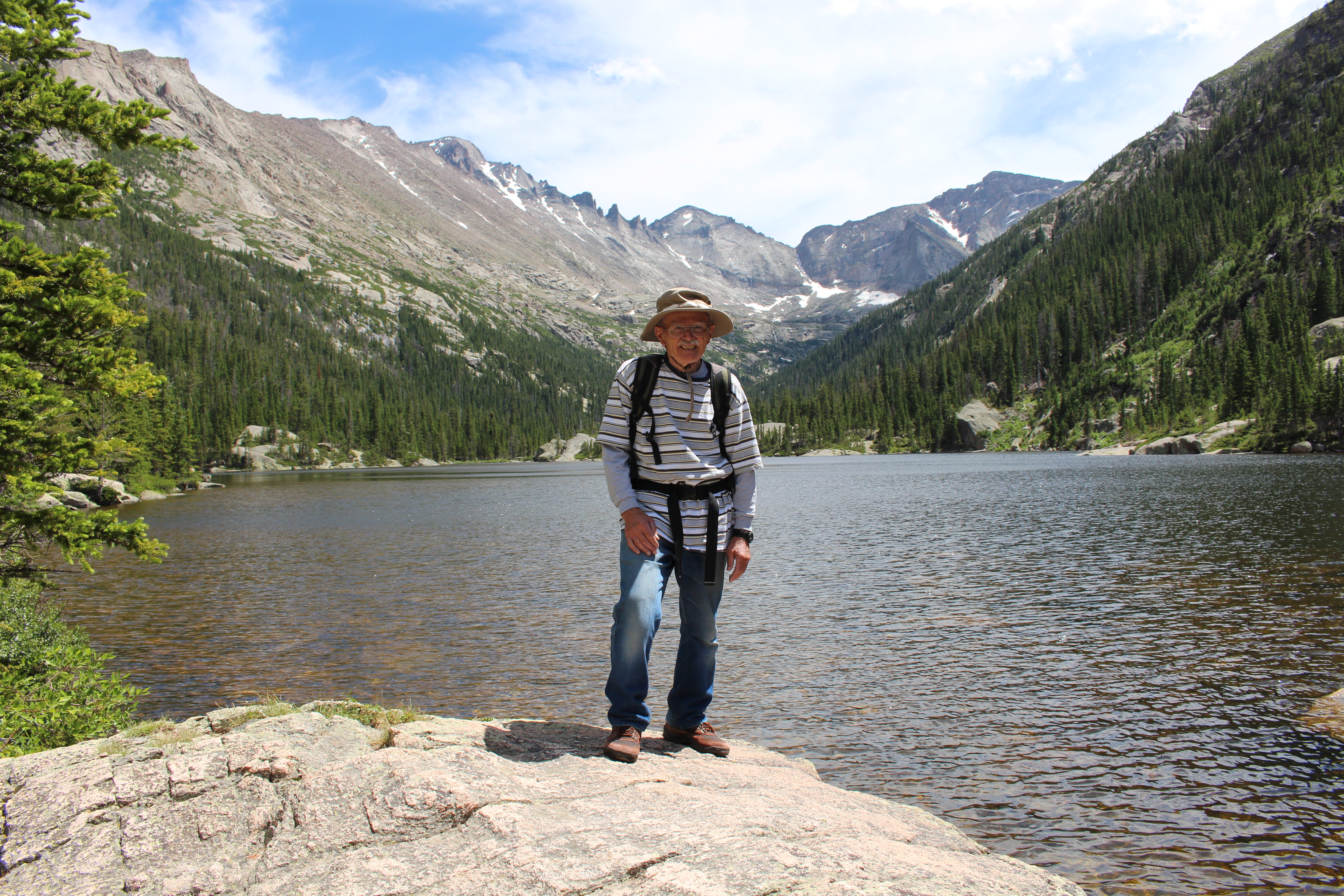

On the occasion of his 80th birthday, here is a biographical sketch of our Dad, Istvan Hollos.
Istvan was born in Kalocsa, Hungary in 1938. Kalocsa is a small town on the Danube River at the edge of the great Hungarian plane. The place is flat as a pancake, and the most exciting thing you can do there is ice skate in the winter.
Some of his earliest memories are of the war. His family went to Lake Balaton where allied bombing was less likely. He remembers once seeing a low flying fighter plane coming toward him, so he jumped on a picnic table to get a better look. The plane came so close, he could see the pilot's face and it scared the hell out of him. Toward the end of the war, with the Russians advancing into Hungary, his family joined a mass exodus of refugees fleeing toward Austria. He remembers seeing prisoners in black and white uniforms being force-marched by soldiers along the road. Those that collapsed were immediately shot by the soldiers. His Mom told him not to look.
The family ended up in Linz Austria, the American occupied part of the country, where they lived until his Mom got homesick and they went back to Hungary. With the Russians occupying the country, communists were soon running the government. Istvan's Dad, having been a judge, was viewed as an undesirable in the new regime. He felt pressure to leave the country, so the family moved to Romania, but it was decided that Istvan would stay with his grandparents in Kalocsa, while his younger brother went with the parents to Romania. He never saw his parents again.
Life with his grandparents, under communism was like a long dark cold rainy day, no colors, everything black and white. If you don't believe it, all you have to do is look at pictures from that time, they're all black and white. His grandfather was a tailor, but with communism, private business was not allowed. Somehow they got by. The communists came to look at their house. They said, "this house is too big for you folks, you need to let some other people move in." So they ended up having to share their house with other families.
Although he did well in school, because of his family background and not being an ardent communist, he was not allowed to go to college. Fortunately, his uncle was a teacher in a nearby vocational school, and through his influence got young Istvan admitted to the school, where he studied chemistry.
Being a young person in a country with a highly oppressive government that closed its borders to its own citizens, he was keenly interested in the west, information about which, the government tried to suppress. In 1956, when he was 18, the Hungarian Revolution occurred. In November of that year, he decided to leave Hungary, as many other Hungarians did. Near the border, which was still dangerous to cross due to mines and soldiers, he joined a small group of similar minded Hungarians that took shelter in a kind farmer's barn until nightfall, at which time the farmer showed the group a safe passage out of the country.
He ended up in Vienna, Austria where the government was welcoming the refugees, and set up camps for them until arrangements could be made to give them a permanent place to live. While in the camp, he was given a job to work at a local paint factory. Eventually he was given a choice to go to the USA or to Australia, from which he chose the USA. He ended up in New York City, where he worked for a time as a waiter in a restaurant. In 1958, he went to the US Army recruiting center on Times Square and signed up for the US Army.
The US Army soon shipped him to Germany, where he met his future wife in Munich. They married there, and in 1960 their first son, Stefan, was born. In November 1963, the army sent him back to the USA. In 1965, he went to Vietnam with the 3/4 Cav (3rd Squadron, 4th Cavalry Regiment, 25th Infantry Division), while his family stayed at his unit's base in Honolulu, Hawaii, where his second son, Richard, was born in 1966. We feel blessed that he made it back from Vietnam alive. If he didn't, our lives would have been very different. In 1973, his third son, David, was born in Fort Knox, KY.
In 1980, he retired after 22 years in the US Army. He was soon hired in civil service as an instructor in Fort Knox, KY, where he worked for 20 years.
On a personal note, he's an extremely kind and generous man who will do anything for his family. He can be highly opinionated, judgmental, and critical which gets him into trouble sometimes. He is, in other words, a sort of Hungarian Archie Bunker, hard on the outside but soft on the inside, like a cheese filled pizza crust. On the other hand he can show an amazing ability to change and adapt for a man his age. A few years ago, for example, he decided to become a semi-vegan when he began having prostate problems.
Last updated: